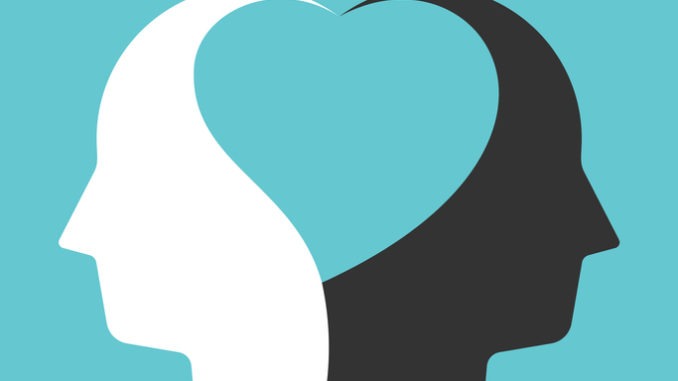
The death of George Floyd, along with the events and debate that have filled the months since, have highlighted again the ongoing and deep-rooted structural racism, injustice and inequality that plague our society, writes founder and leader of Oasis Charitable Trust, Steve Chalke
CREDIT: This is an edited version of an article that originally appeared on Integrity Coaching
<text begins>
The toppling of effigies erected to men who grew rich through the trafficking of black human beings delighted some and horrified others. However, as historian David Olusoga commented, after the statue of 17th-century slave trader Edward Colston was torn from its city centre plinth in Bristol, and thrown into the harbour, “This was not an attack on history. This is history.”
The symbolic must become systemic
You may believe that a statue to a man who traded in human flesh being pulled from the pedestal on which a previous generation had placed it was a criminal attack; you may believe that it was an act of liberation. In my view, it was probably both in exactly the same moment. However, what is clear is that lasting change has to be more than symbolic; it must become systemic.
Therefore, the real question is, how do we turn this moment into a movement? A movement that serves as the harbinger of genuine transformation?
Racism is a complex system of privilege and legacy, advantage and disadvantage, power and poverty. It is explicit and implicit. It is conscious and unconscious. It is the air that we breathe. It impacts us all from birth. As Layla Saad puts it in her book Me and White Supremacy, ‘White supremacy is a system [we all] have been born into…[but] I invite you to…work to dismantle it within yourself and the world.’
I believe that education can be the engine of social and cultural change we long for. I believe that education can be the most potent driver towards equity and true opportunity. But, if that’s true, the question becomes, ‘How will we all work together to use this moment to harness its power to break, rather than reinforce, the cycle of institutional inequality?’
Terminology issues
Consider that our constant use of the term ‘BAME’ – black, Asian and minority ethnic – may actually mask the truth rather than reveal it. Popular with government departments, public bodies, the media and others to describe about 14% of British people who do not identify as white, its problem is that it is homogenising. It does not account for the different ways in which different ethnic minorities experience racism in our systems and so it helps to conceal the fact that black Caribbean young people are struggling in our education system more than Africans or Asians.
Consider that the latest UK government figures for England state that, ‘mixed white and black Caribbean’ and ‘black Caribbean’ pupils are nearly three times as likely to be permanently excluded as white British students, and that they perform extremely poorly at GCSE.
Consider the fact that although children of African, Caribbean and Asian heritage make up a third of the national school population, only five per cent of senior leadership posts – assistant heads, deputy heads and heads – are from this background.
Consider that even this hides a starker truth; black leaders make up only one per cent of all senior leadership posts in education. What is the impact on a young person who does not get to experience leadership role-modelled by someone with the same colour skin as theirs?
We need a new approach
Consider that the national curriculum has perpetuated a Eurocentric narrative – a narrative that suppresses – or even ignores – African, Caribbean and Asian perspectives and heritage.
The history curriculum, for instance, rarely provides students with an understanding of the way in which slavery and colonialism have shaped modernity, or highlights the importance of challenging sources, opinions and received historical ‘truths’. History, as they say ’is written by the victors’ or, put more sharply, ‘The victor will always be the judge, and the vanquished the accused.’
And because, of course, the same tends to go for the music, art, literature and religious education curriculums, we are simply setting up future generations to perpetuate the same racism on which we would love to turn our backs. We need a new approach – a new approach to the curriculum, to pedagogy, to leadership and to leadership training – all of which can effectively address the following questions.
– How do we ‘out’ the systems that create racial oppression within education?
– How do we build an educational culture where no-one is discriminated against, or disadvantaged, because of the colour of their skin, ethnicity or nationally?
– How do we create diversity in leader recruitment in the education system?
– How do we empower and enable African, Caribbean, Asian and all minority-ethnic students to aspire to the highest levels of leadership in society?
– How do we create room for an open and honest conversation – with room to hear one another – especially those of us of African, Caribbean, Asian and other minority heritages?
– How do celebrate black excellence?
Racism thrives best in the company of silence but I believe that, together, we have the platform and the power to help build a society whose hallmark is equality. Through the Black Lives Matter movement racial equality and social justice have now been firmly placed back on the agenda, and schools must be at the forefront as agents for change.
Black children and black teachers need to know that, in the UK education system, their lives really do matter and see this evidenced as part of their lived daily reality. Headteachers and senior school leaders have a key role to play in making this happen. Together, you shape the culture, the vision, the ethos for your schools. Together, you determine, in practice, what racial equality and social justice look like. And together, you must decide the leadership that is needed for these times.
This is a courageous path that you will have to travel, because it will require you to explore issues of identity and integrity and what they truly mean in the context of your own school settings. It will require you to have difficult conversations and face uncomfortable truths. Yet it is these sorts of conversations which truly define leadership, and are fundamental to growth and positive change.
What’s more, it’s only by leaning into the uncomfortable spaces and finding, with help and support, that something new, something better can be brought to life.



Be the first to comment